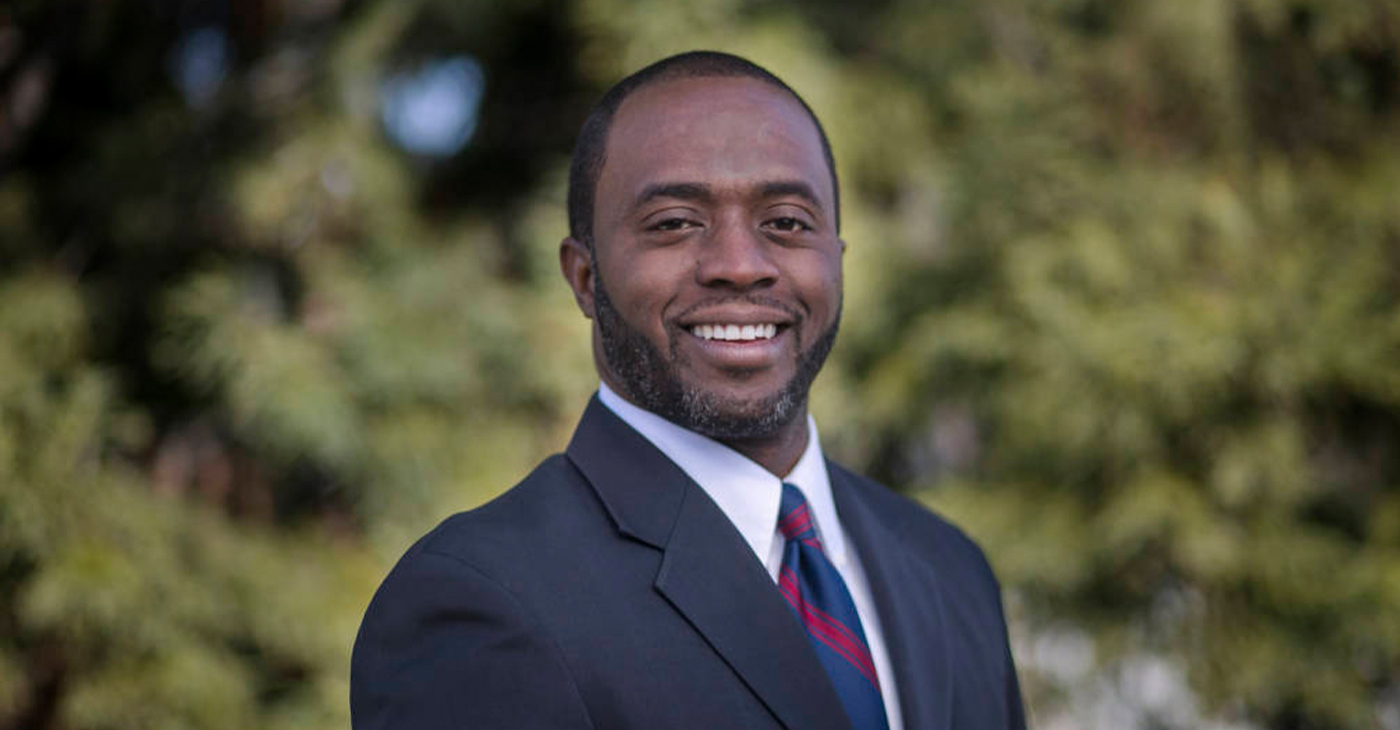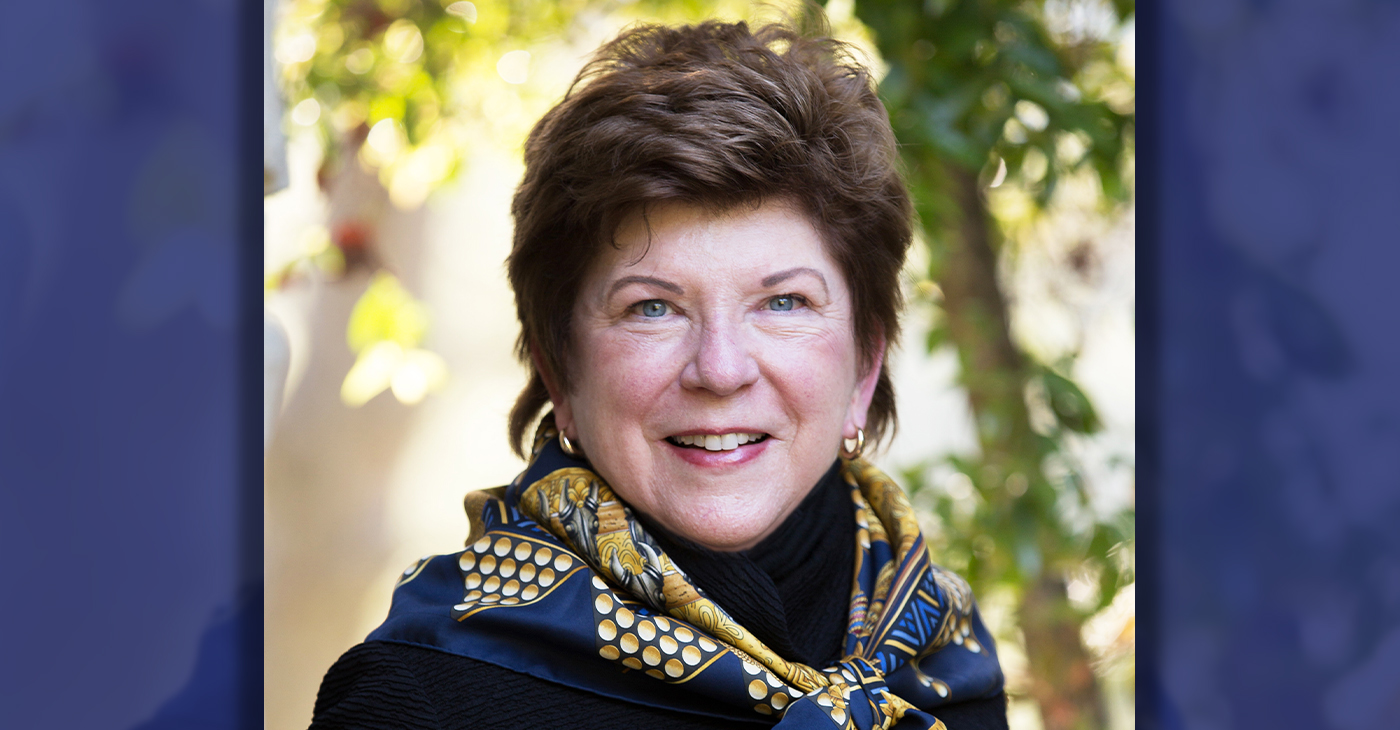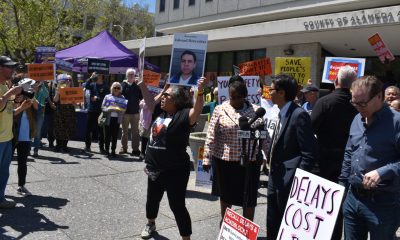Education
Oakland Schools Considers Parcel Tax for School-to-Career Academies
The Oakland Unified School District may become one of the first public school systems in the country to seek a parcel tax to pay for academy programs that prepare students for college and careers.
The district is studying the feasibility of a parcel tax. So far, officials are finding public support for a parcel tax on the November ballot to pay to expand linked learning, which is what the district now calls school-to-career programs at its high schools
A parcel tax would require approval from two-thirds of voters.
“The health of the health of the district is very depend on the quality of our high schools, which are low performing at this point,” said Jumoke Hinton Hodge, school board member for District 3.
“If we want kids to stay in school, if we want them to back into our district, our high schools have got find better ways to support young people to go to college and explore career pathways for themselves,” she said.
Added District 5 Boardmember Roseann Torres, “We’re already doing some amazing things for students with Linked Learning in some part s of the district. It would make sense if we could do it across the city.”
About 67 percent of polled voters said they would support a $150-a-year parcel tax to “ensure all students graduate high school prepared to succeed in college and career,” according to a voter survey commissioned by Oakland Community Organizations and the East Bay Asian Youth Center, two local organizations that advocate for the public schools.
Linked-learning programs, which have been around for decades under various titles, integrate academics with real-world work experience, such as internships and job shadowing, to keep students engaged in their studies and help them succeed after high school.
The district says these programs promise to help them reach their goal of expanding career pathway and academy programs to its 9,200 high school students. The goal is to find programs that raise graduation rates and improve academic performance.
The district now runs 29 academies on 11 high school campuses, serving about 2,800 students a year.
According to official statistics, 25 percent of Oakland students dropped out of high school in 2011-12, though many studies indicate that the rate is considerably higher.
Some of the data show that students linked learning career academics make dramatic academic strides. According to the district, those who participate in existing programs have an 84 percent graduation rate, and 52 percent of them complete the courses required for university admission, compared with 31 percent of Oakland’s students in traditional high school programs.
Turning academies into a district-wide program will cost an additional $13 million a year. Career academy programs generally cost $1,500 more per student than traditional high school programs.
Start-up costs will be higher, about $1,900 per student.
No dollar amount has been set for a potential parcel tax. An amount under $100 would generate about $9 million or $10 million a year, according to the district. A parcel tax campaign would cost an estimated $200,000 to $300,000.
Hinton Hodges is hoping that a potential parcel tax would be expanded to supply funds to support school libraries and outdoor science learning, including instructional farms.
California Black Media
State Ed Chief Tony Thurmond Pushes Bill to Train Educators
State Superintendent of Public Instruction (SSPI) Tony Thurmond is advocating for comprehensive training for teachers in reading and math, emphasizing the urgent need to improve student academic outcomes across California. On April 24, during testimony in the Senate Education Committee, Thurmond backed Senate Bill (SB)1115, which aims to provide evidence-backed educator training. The committee passed the bill with a 7-0 vote.

By California Black Media
State Superintendent of Public Instruction (SSPI) Tony Thurmond is advocating for comprehensive training for teachers in reading and math, emphasizing the urgent need to improve student academic outcomes across California.
On April 24, during testimony in the Senate Education Committee, Thurmond backed Senate Bill (SB)1115, which aims to provide evidence-backed educator training. The committee passed the bill with a 7-0 vote.
Thurmond pointed out to the committee that existing funding for educator training in literacy and math only covers about one-third of California’s educator workforce. SB 1115, Thurmond said, would fund the remaining two-thirds.
“This is an issue of moral clarity,” according to Thurmond. “In the fifth-largest economy in the world, and in an age when we have access to substantial brain science about how students learn, it should be unacceptable to train only some educators in the best strategies to teach essential skills.”
SB 1115 incorporates multiple research-backed methods, including phonics, and it aligns with the California ELA/ELD Framework, which encourages biliteracy and multilingualism.
Thurmond emphasized the moral imperative behind the push for enhanced training by noting that 70% of incarcerated adults struggle with reading or are illiterate.
“Every child should feel supported as they learn to read and every teacher should feel confident in their ability to support students’ foundational literacy,” Thurmond said. “SB 1115 is about ensuring that all children have the opportunity to read by third grade, and that all children have a shot at the life-changing outcomes that come from early literacy.”
The next step for SB 1115 is a hearing in the Senate Appropriations Committee on May 6.
Commentary
Opinion: Lessons for Current Student Protesters From a San Francisco State Strike Veteran
How the nation’s first College of Ethnic studies came about, bringing together Latino, African American and Asian American disciplines may offer some clues as to how to ease the current turmoil on American college campuses over the Israel-Hamas war. After the deadline passed to end the Columbia University encampment by 2 p.m. Monday, student protesters blockaded and occupied Hamilton Hall in a symbolic move early Tuesday morning. Protesters did the same in 1968.

By Emil Guillermo
How the nation’s first College of Ethnic studies came about, bringing together Latino, African American and Asian American disciplines may offer some clues as to how to ease the current turmoil on American college campuses over the Israel-Hamas war.
After the deadline passed to end the Columbia University encampment by 2 p.m. Monday, student protesters blockaded and occupied Hamilton Hall in a symbolic move early Tuesday morning.
Protesters did the same in 1968.
That made me think of San Francisco State University, 1968.
The news was filled with call backs to practically every student protest in the past six decades as arrests mounted into hundreds on nearly two dozen campuses around the country.
In 1970, the protests at Kent State were over the Vietnam War. Ohio National Guardsmen came in, opened fire, and killed four students.
Less than two weeks later that year, civil rights activists outside a dormitory at Jackson State were confronted by armed police. Two African American students were killed, twelve injured.
But again, I didn’t hear anyone mention San Francisco State University, 1968.
That protest addressed all the issues of the day and more. The student strike at SFSU was against the Vietnam war.
That final goal was eventually achieved, but there was violence, sparked mostly by “outside agitators,” who were confronted by police.
“People used the term ‘off the pigs’ but it was more rally rhetoric than a call to action (to actually kill police),” said Daniel Phil Gonzales, who was one of the strikers in 1968.
Gonzales, known as the go-to resource among Filipino American scholars for decades, went on to teach at what was the positive outcome of the strike, San Francisco State University’s College of Ethnic Studies. It’s believed to be the first of its kind in the nation. Gonzales recently retired after more than 50 years as professor.
As for today’s protests, Gonzales is dismayed that the students have constantly dealt with charges of antisemitism.
“It stymies conversation and encourages further polarization and the possibility of violent confrontation,” he said. “You’re going to be labeled pro-Hamas or pro-terrorist.”
That’s happening now. But we forget we are dealing not with Hamas proxies. We are dealing with students.
Gonzales said that was a key lesson at SF State’s strike. The main coalition driving the strike was aided by self-policing from inside of the movement. “That’s very difficult to maintain. Once you start this kind of activity, you don’t know who’s going to join,” he said.
Gonzales believes that in the current situation, there is a patch of humanity, common ground, where one can be both pro-Palestine and pro-Israel. He said it’s made difficult if you stand against the belligerent policies of Benjamin Netanyahu. In that case, you’re likely to be labeled antisemitic.
Despite that, Gonzales is in solidarity with the protesters and the people of Gaza, generally. Not Hamas. And he sees how most of the young people protesting are in shock at what he called the “duration of the absolute inhumane kind of persecution and prosecution of the Palestinians carried out by the Israeli government.”
As a survivor of campus protest decades ago, Gonzales offered some advice to the student protesters of 2024.
“You have to have a definable goal, but right now the path to that goal is unclear,” he said.
About the Author
Emil Guillermo is a journalist and commentator. A veteran newsman in TV and print, he is a former host of NPR’s “All Things Considered.”
Bay Area
Obituary: Former California Education Superintendent Delaine Eastin Passes at 76
Delaine Eastin, who served as a former state Assemblymember representing parts of Santa Clara and Alameda County — and the first woman elected as State Superintendent of Public Instruction — died at age 76 on April 23. Eastin passed away from complications caused by a stroke.

By California Black Media
Delaine Eastin, who served as a former state Assemblymember representing parts of Santa Clara and Alameda County — and the first woman elected as State Superintendent of Public Instruction — died at age 76 on April 23.
Eastin passed away from complications caused by a stroke.
Known for her power of persuasion, Eastin used her influence to be a champion for bipartisan issues that helped raise academic standards, lower class sizes, and emphasize the importance of conserving nature and the environment in schools.
Former Assembly Speaker Willie Brown and fellow legislative colleagues said that Eastin was in demand on the speech circuit while serving as a legislator.
“Few could engender the kind of emotion and passion she delivered in every speech,” Brown said.
State superintendent Tony Thurmond called Eastin a trailblazer who inspired fellow public servants.
“California lost an icon in our school system today. Delaine Eastin’s legacy as a trailblazer in public education will forever inspire us. Her unwavering dedication to California students — from championing Universal Preschool and the “A Garden in Every School” program to honoring our educators by establishing the California Teachers of the Year Awards — has left an indelible mark on our state’s educational landscape,” said Thurmond.
Thurmond honored Eastin’s legacy at the California Teacher of the Year Program, an honor that she established during her time as superintendent.
-

 Community2 weeks ago
Community2 weeks agoFinancial Assistance Bill for Descendants of Enslaved Persons to Help Them Purchase, Own, or Maintain a Home
-

 Activism4 weeks ago
Activism4 weeks agoOakland Post: Week of April 3 – 6, 2024
-

 Business3 weeks ago
Business3 weeks agoV.P. Kamala Harris: Americans With Criminal Records Will Soon Be Eligible for SBA Loans
-

 Activism3 weeks ago
Activism3 weeks agoOakland Post: Week of April 10 – 16, 2024
-

 Community3 weeks ago
Community3 weeks agoAG Bonta Says Oakland School Leaders Should Comply with State Laws to Avoid ‘Disparate Harm’ When Closing or Merging Schools
-

 Community2 weeks ago
Community2 weeks agoOakland WNBA Player to be Inducted Into Hall of Fame
-

 Community2 weeks ago
Community2 weeks agoRichmond Nonprofit Helps Ex-Felons Get Back on Their Feet
-

 Community2 weeks ago
Community2 weeks agoRPAL to Rename Technology Center for Retired Police Captain Arthur Lee Johnson























































